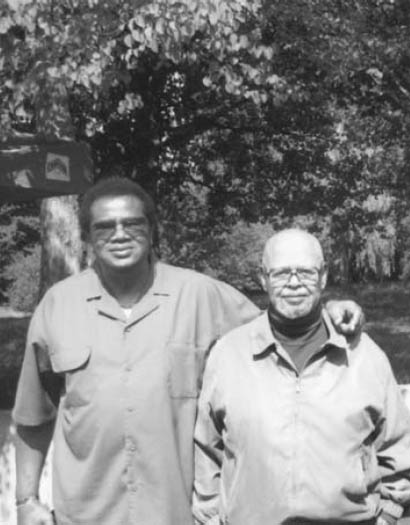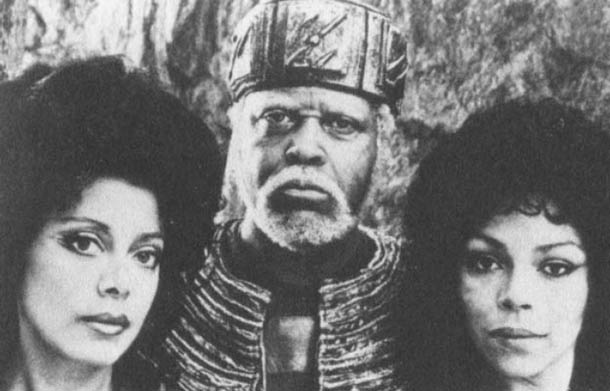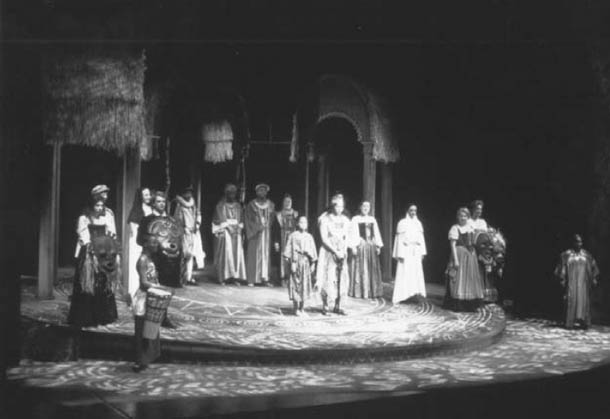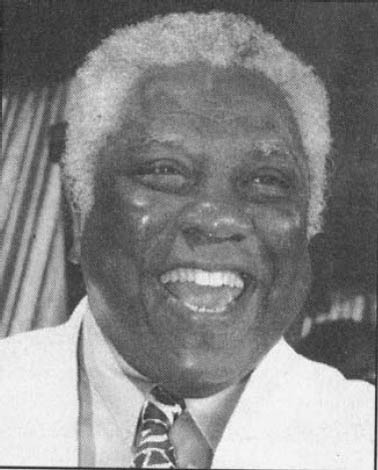
Dr. Anthony D. Hill is a writer, director, administrator, and associate professor of drama in the Department of Theatre at the Ohio State University. His work has concentrated extensively on previously marginalized theatre practices, African American and American theatre history, and performance theory and criticism. He recently developed and implemented upper-division undergraduate seminars on the life and works of August Wilson. He is featured in Who’s Who in Black Columbus (2006 ed.). His book Pages from the Harlem Renaissance: A Chronicle of Performance (1996) is now in its second edition. His essays have appeared in such journals as Text and Presentation, Journal of the Comparative Drama Conference; Black Studies: Current Issues, Enduring Questions; and African American Review (formerly Black American Literature Forum). He contributed several historical articles to Dr. Quintard Taylor’s Pursuing the Past in the Twenty-first Century on the World Wide Web and a book review in The Journal of the Southern Central Modern Language Association and was contributing editor for History of the Theatre (9th ed.), Theatre Studies, and Elimu.
Hill received advanced degrees in theatre at the University of Washington (B.A.) and Queens College (M.A.) and in performance studies at New York University (Ph.D.). He has taught at Vassar College, University of California at Santa Barbara, and the Ohio State University. He has been active professionally at the National Black Theatre Network Conference, the National Black Theatre Festival in Winston-Salem, NC, the National Conference of African American Theatre, the American Theatre of Higher Education, and other theatre organizations.
Douglas Q. Barnett is a writer, theatre administrator, play director, and producer. In 1968, he founded Black Arts/West (BA/W) in Seattle. During his five-year tenure as founding director of BA/W (1968–73), Barnett produced nearly 50 plays and recruited reputable directors from New York City to direct plays at the theatre. A significant number of students at BA/W have become professionals and have performed on Broadway, in regional theatres, on television, and in dance companies. Because of its success, BA/W has become a nationally acclaimed entity across the United States. A highlight of Barnett’s career after he left BA/W was serving as company manager for the national tour (1973–74) of Joseph A. Walker’s Tony award-winning play The River Niger, produced by the Negro Ensemble Company. He has also worked for the Seattle Arts Commission and GeVa Theatre in Rochester, NY.
Barnett has directed and written plays at BA/W, including Da Minstrel Show and Days of Thunder, Nights of Violence, and arranged, edited, and directed productions of African American poetry—a particular passion. He has also authored articles for the Seattle Times, the Seattle Post Intelligencer, Negro Digest, Black World, and Historylink.org, an online repository of Pacific Northwest history. Barnett has acted in over 30 productions with five different companies, including BA/W, A Contemporary Theatre, the Ensemble Theatre, and the Seattle Repertory Theatre. In 2007, the National Black Theatre Network (BTN) honored Barnett with the Pioneer Theatre Award at the historic North Carolina A&T in Greensborough, NC, with BTN president Dr. Sandra G. Shannon and Woodie King Jr. presiding.

Left to right: Theatre patron and former director/choreographer Bambi Lynn Nickelberry, M.D., hosting at her home in Los Angeles, playwright August Wilson, director Lloyd Richards, and actor Charles Dutton after the “Fireside Chat with August Wilson,” sponsored by the Center Theatre Group, c. 1992. Wilson won two Pulitzer Prizes in drama—Fences in 1987 and The Piano Lesson in 1990. He also wrote an epic 10-play cycle chronicling the African American experience for each decade of the 20th century. Wilson’s mentor, Richards, was the dean of the Yale School of Drama and directed Wilson’s first five plays on Broadway. Richards won the Tony Award as best director for Fences. Dutton made his Broadway debut in Wilson’s Ma Rainey’s Black Bottom (1985).
James Hewlett as Richard III at the African Grove Theatre in New York City, 1821, where he gained the reputation as the first professional African American actor in the United States.
Ira Aldridge performing Othello in Frankfurt, Germany (From a lithograph by S. Buhler, 1852.). Expatriate Aldridge was internationally acclaimed throughout Europe for over 40 years.
George and Aida Walker with Bert Williams and Stella Wiley doing the Cake Walk, c. early 1900s. The duo of Williams and Walker became one of the most successful and celebrated vaudeville teams around the turn of the century.
Krigwa Theatre Company makes a curtain call after a performance in Harlem, 1926. At this theatre, Krigwa founder W. E. B. DuBois mandated that theatre should be by, about, for, and near the black community.

A rehearsal in Seattle of Langston Hughes’s Simply Heavenly by the Contemporary Players, directed by Keve Bray. Anthony D. Hill is downstage center as Boyd, c. late 1960s.
Joe Staton as Petrarch (center to right), Sarah Oliver as Kate, and Robert A. St. Clear as the preacher in the wedding scene from the Seattle Negro Repertory Company’s production of The Taming of the Shrew, 1939. This was one of the many Negro units established throughout the country by President Franklin Delano Roosevelt’s Works Progress Administration Federal Theatre Project during the Great Depression.
Uta Hagen as Desdemona and Paul Robeson in the title role of Othello at the Shubert Theatre on Broadway in 1943. Othello played for 296 performances, breaking the record of 157 of any Shakespeare play in America at that time. The show also broke down the racial barrier of an integrated production on Broadway.
The production staff of Summer Theatre Lincoln at Lincoln University in Jefferson City, MO. Left to right: Bertram Martin, Owen Dodson, Whitney LeBlanc, and Winona Fletcher; Tom Pawley is standing, 1960.

Ellen Holly as Regan, James Earl Jones as King Lear, and, Rosalyn Cash as Goneril in King Lear by the New York Shakespeare Festival/Public Theatre, Joseph Papp, producer, at the Delacorte Theatre, 1973.
Obie Award–winning playwright Amiri Baraka (Leroi Jones), author of Dutchman and The Slave Ship, is a cultural and spiritual leader of the revolutionary black arts and black theatre movements of the 1960s.
Jane White as Goneril in a scene from the American Shakespeare Festival Theatre/Public Theatre production of King Lear, 1975.
A production of Coriolanus featuring Roscoe Orman and Frankie Faison as Senators, Robert Christian as Tullus Aufidius, and Morgan Freeman as Coriolanus at the New York Shakespeare Public Theatre Festival/ Public Theatre, Joseph Papp, producer, 1979.
Left to right: Alexander Conley III, Jason Bernard, and Charles Canada rehearsing Dream on Monkey Mountain at Douglas Q. Barnett’s Black Arts/West, c. 1971.

A production of Fortunes of the Moor by Barbara and Carlton Molette, directed by Anthony D. Hill at the Ohio State University, February 1998.
Ifa Bayeza is a playwright, dramaturge, and theatre producer who works out of San Francisco and Chicago.
The plenary session of American theatre and the African diaspora at the 27th Comparative Drama Conference in Columbus, OH, April 2003. Right to left: Professor Samuel A. Hay, dean, North Carolina A&T; Professor David Krasner, Yale University; Professor Anthony D. Hill, the Ohio State University; Professor Sandra L. Richards, Northwestern University; Professor Harry J. Elam Jr., Stanford University; Professor James V. Hatch, City University of New York; Eileen Morris, artistic director, Kuntu Theatre/The Ensemble Theatre; and Professor Tisch Jones, University of Iowa.

Woodie King Jr. is producer, director, author, educator, founder, and artistic director of the New Federal Theatre in New York City. A producer and director of more than 200 plays, King is the most prolific African American dramatist.
Daniel Beaty in a scene from his highly acclaimed performance piece Emergence-SEE! at the National Black Theatre Festival in Winston-Salem, NC, 2007.
George C. Wolfe is playwright, producer, and artistic director of the New York Shakespeare Theatre Festival/Public Theatre. His best-known play, The Colored Museum, is a satirical look at black culture.
Lynn Hamilton is a veteran stage, television, and film actress. For five years, she was a resident member of Joseph Papp’s New York Shakespeare Festival Theatre/Public Theatre, where she played feature roles in Romeo and Juliet, MacBeth, Henry V, and The Taming of the Shrew.
Derek Walcott is a Caribbean playwright, poet, educator, and Nobel Prize winner for literature, 1992. His most-produced play is Dream on Monkey Mountain.
Valerie Curtis-Newton, artistic director at A Contemporary Theatre in Seattle, where she oversees the Hansberry Project, discusses with William Hall, Jr., a scene from Michael Bradford’s Fathers and Sons.
Suzan-Lori Parks, the first African American woman playwright to win the Pulitzer Prize in drama for her linear play Topdog/Underdog (2002)—a departure from her abstract, expressionist avant-garde form.